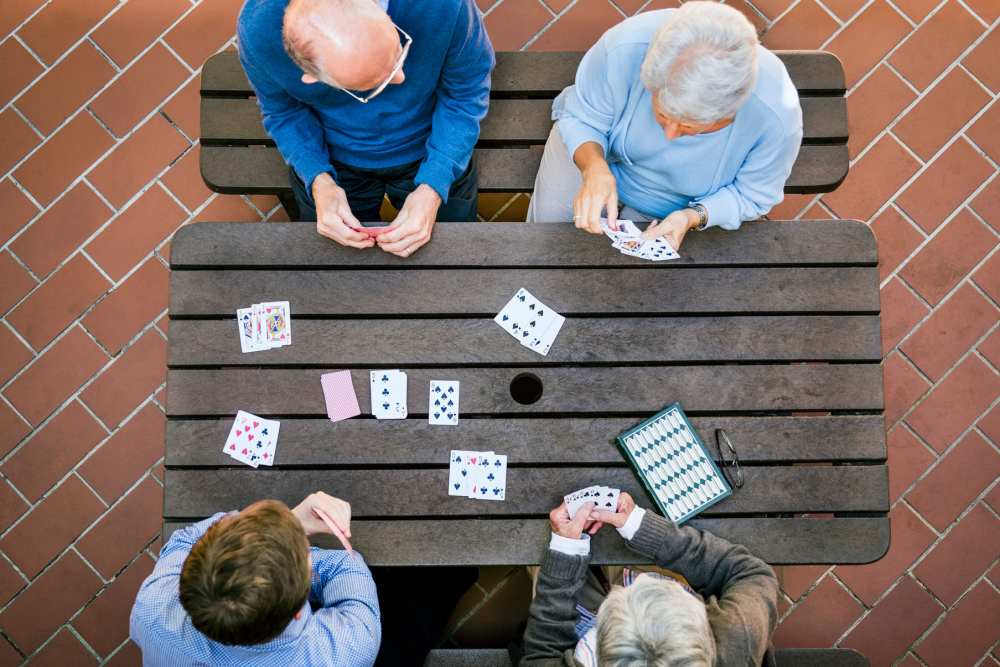




THE RETIREMENT YOU DESERVE
Welcome to The Villas at Stanford Ranch
You’ve discovered one of Northern California’s most upscale senior living communities. The Villas at Stanford Ranch of Rocklin, located in Placer County, provides Independent Living, Assisted Living, and Memory Care. Our dedicated care team has longevity in the industry, and our community is purposefully designed to provide a welcoming home where residents can continue to enjoy life and age in place.
Talk to our team, tour our community, and find the relaxing retirement lifestyle you, or your loved one, deserves.
“EXTRA” IS EVERY DAY
First-Class Services & Amenities
We’ve brought everything you need under one roof! From beautifully appointed apartments, community rooms, and gathering spaces, to life-enhancing services to calm any worries, we provide for residents in every way. The Villas at Stanford Ranch isn’t just a place to receive high-quality care, it’s a place to live your life to the fullest. Residents have the freedom and support to spend days doing what they love, or nothing at all! So go ahead, take a dip in the pool, join a class in the on-site fitness center, relax with a book in the community library, or enjoy a stroll through the garden with friends.
Revel in The Extras
Stellar Services & Amenities
From the beautifully appointed apartments and community spaces to the full slate of activities and events, we pamper our residents in every way. The Villas at Stanford Ranch isn’t just a place to receive high-quality care, it’s a place to live life to the fullest. Residents have the freedom and support to spend the days doing what they love, whether it’s taking a dip in the sparkling pool, staying active in the on-site fitness center, or enjoying a beautiful stroll through the scenic walking trails.
Take a Peek
Life at The Villas at Stanford Ranch
Enjoy a photo and video tour of our upscale senior community in Rocklin, California, then contact us to schedule an onsite visit to get a better sense of the life you can enjoy at The Villas at Stanford Ranch.



CONVENIENTLY LOCATED
Near Whitney Ranch
The Villas at Stanford Ranch boasts beautiful Spanish architecture tucked into the hills of Rocklin, California, near the communities of Lincoln, Loomis, and Roseville. You’ll feel a world away even though you're just minutes from a variety of shops, restaurants, and recreational venues for golf, hiking, and fishing.

Wineries
Sip & Enjoy the Surrounding Views

Strikes Unlimited
Enjoy a Day of Fun & Entertainment

Roseville Medical Center
Full-Service Medical Care Close By

Fountains at Roseville
Browse The Shops & Grab a Bite
Carefree & Cared For
For You
At The Villas at Stanford Ranch, we take great pleasure in getting to know our residents, many of whom have been with us since the community opened. We do so much more than just provide housekeeping, meals, and the personal care services. We’ll get to know their history, needs, preferences, and passions, allowing us to tailor our services to what is most important and encourage them to live as independently as possible. At The Villas at Stanford Ranch, a successful and carefree retirement starts with you.



Carefree & Cared For
For You
At The Villas at Stanford Ranch, we take great pleasure in getting to know our residents, many of whom have called The Villas at Stanford Ranch home for more than a decade. We attribute this longevity partially to the uniqueness of our programs. We offer more than the basic transportation, housekeeping, dining, activities, and care services. We get to know our residents and we design our programs around their needs. We learn their preferences, interests, and stories because we genuinely care. The goal is to support our residents so they can live as independently as possible – however that looks for them.



Connect With Us on
Social Media








Get In Touch
Loading...
Extraordinary Care
Refined Living





